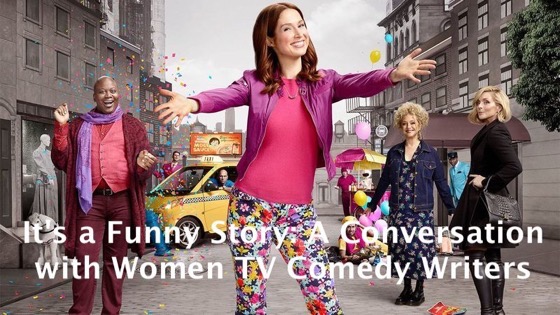Watch this entire presentation: Gender Diversity in the Who-niverse: Paving the Way for a Lady Doctor with Dr. Rosanne Welch [Video] (36:58)
For her 5th Doctor Who lecture to the CPP community, Dr. Rosanne Welch discusses how society – and the show’s writing staff – prepared the audience for a major change in this 50-year franchise – the creation of the first Lady Doctor!
Transcript:
…and I also just jokingly have to say, from a strength standpoint Jean Marsh, the actress who played that character (Sara Kingdom) ended up writing the miniseries “Upstairs, Downstairs” which was the “Downton Abbey” of your parent’s generation. Huge PBS show about the maids and the rich people living in a house. So literally it was a copy — or the predecessor I should say — of “Downton Abbey.” So she moved her career, using this acting career into a writing career where she could write the kind of representations she felt that the world needed. So that is pretty cool. Liz Shaw came up in the John Pertwee era, The third Doctor Who and she was a scientist so she was the equal to any of the men she worked with and sometimes she was smarter than they were, because she had a Ph.D. and she could do science and these guys sometimes weren’t — sometimes just military dudes. So Liz Shaw is a pretty good example of a strong woman we’ve met along the way.
Follow Dr. Welch on Twitter and Instagram
https://twitter.com/rosannewelch – http://instagram.com/drrosannewelch
Rosanne Welch, PhD
Rosanne Welch PhD teaches the History of Screenwriting and One-Hour Drama for the Stephens College MFA in Screenwriting.
Writing/producing credits include Beverly Hills 90210, Picket Fences, ABCNEWS: Nightline and Touched by an Angel. In 2016 she published the book Why The Monkees Matter: Teenagers, Television and American Pop; co-edited Women in American History: A Social, Political, and Cultural Encyclopedia; and placed “Transmitting Culture Transnationally Via the Characterization of Parents in Police Procedurals” in the New Review of Film and Television Studies. Essays appear in Torchwood Declassified: Investigating Mainstream Cult Television and Doctor Who and Race: An Anthology. Welch serves as Book Reviews editor for Journal of Screenwriting and on the Editorial Advisory Board for Written By magazine, the magazine of the Writers Guild.
Watch Dr. Welch’s talk “The Importance of Having a Female Voice in the Room” at the 2016 TEDxCPP.
Podcast: Play in new window | Download
Subscribe: RSS
![22 More Strong Female Companions In The Past from Gender Diversity in the Who-niverse [Video] (0:51)](https://rosannewelch.com/wp-content/uploads/2018/07/gender-dw-22-strong-women-2.jpeg)
![10 Randy Scouse Git and the War from How The Monkees Changed Television [Video] (0:53)](https://rosannewelch.com/wp-content/uploads/2018/07/monkees-tv-10-randy-scouse-git.jpeg)




 and Follow
and Follow![21 Strong Female Companions In The Past from Gender Diversity in the Who-niverse [Video] (0:51)](https://rosannewelch.com/wp-content/uploads/2018/07/gender-dw-21-strong-women.jpeg)
![09 Counterculture and The Monkees from How The Monkees Changed Television [Video] (0:58)](https://rosannewelch.com/wp-content/uploads/2018/07/monkees-tv-09-counterculture.jpeg)
![20 More Preparations For A Lady Doctor for Lady Doctor from Gender Diversity in the Who-niverse [Video] (1:04)](https://rosannewelch.com/wp-content/uploads/2018/07/gender-dw-20-more-prep.jpeg)
![08 Television After 1968 from How The Monkees Changed Television [Video] (0:55)](https://rosannewelch.com/wp-content/uploads/2018/07/monkees-tv-08-after-1968.jpeg)
![19 Steven Moffatt Prepares for Lady Doctor from Gender Diversity in the Who-niverse [Video] (1:13)](https://rosannewelch.com/wp-content/uploads/2018/07/gender-dw-19-moffat-prepares.jpeg)
![07 Overview of The Monkees’ Affect from How The Monkees Changed Television [Video] (1:28)](https://rosannewelch.com/wp-content/uploads/2018/07/monkees-tv-07-affect.jpeg)